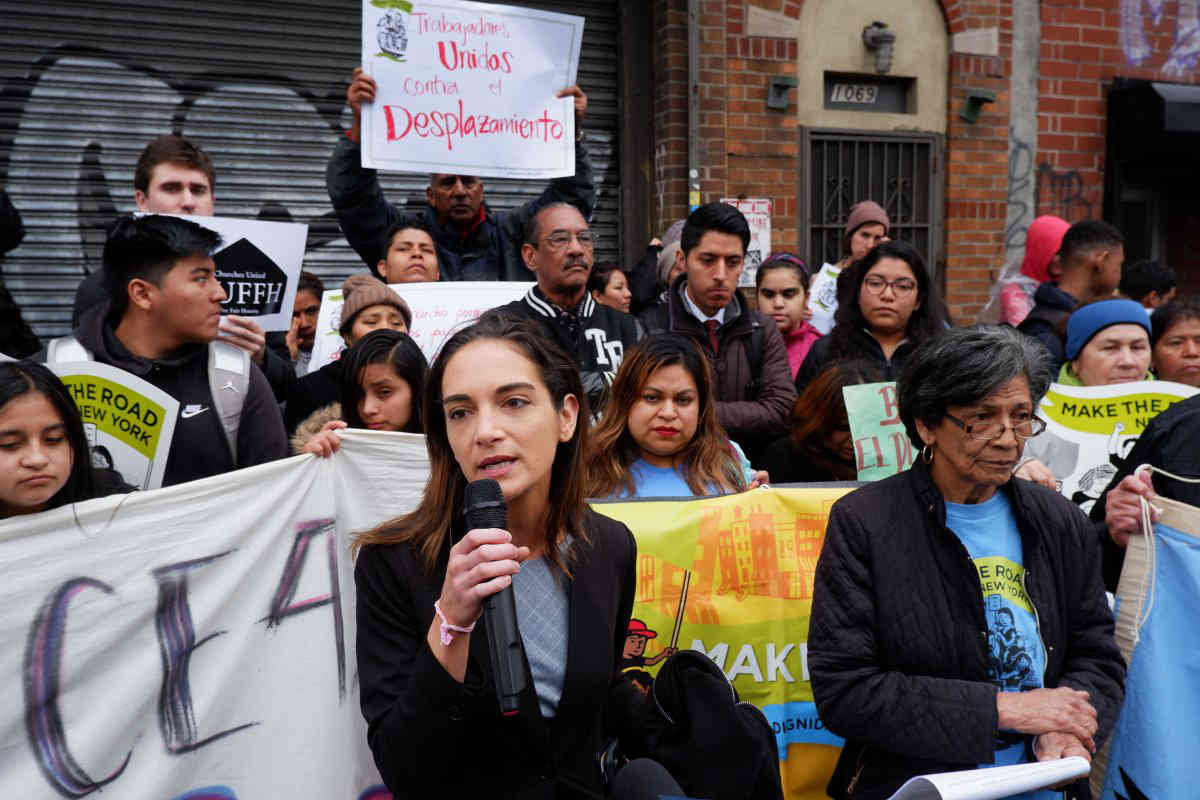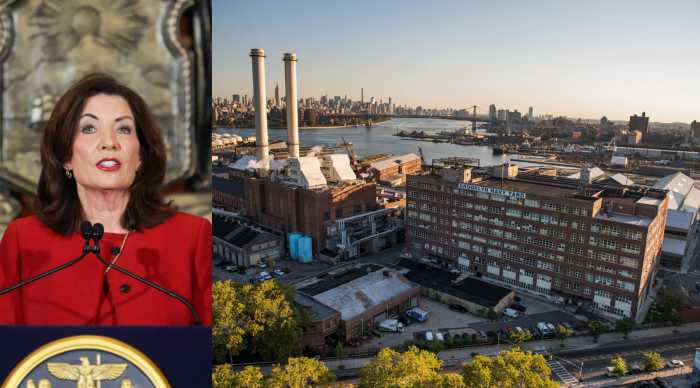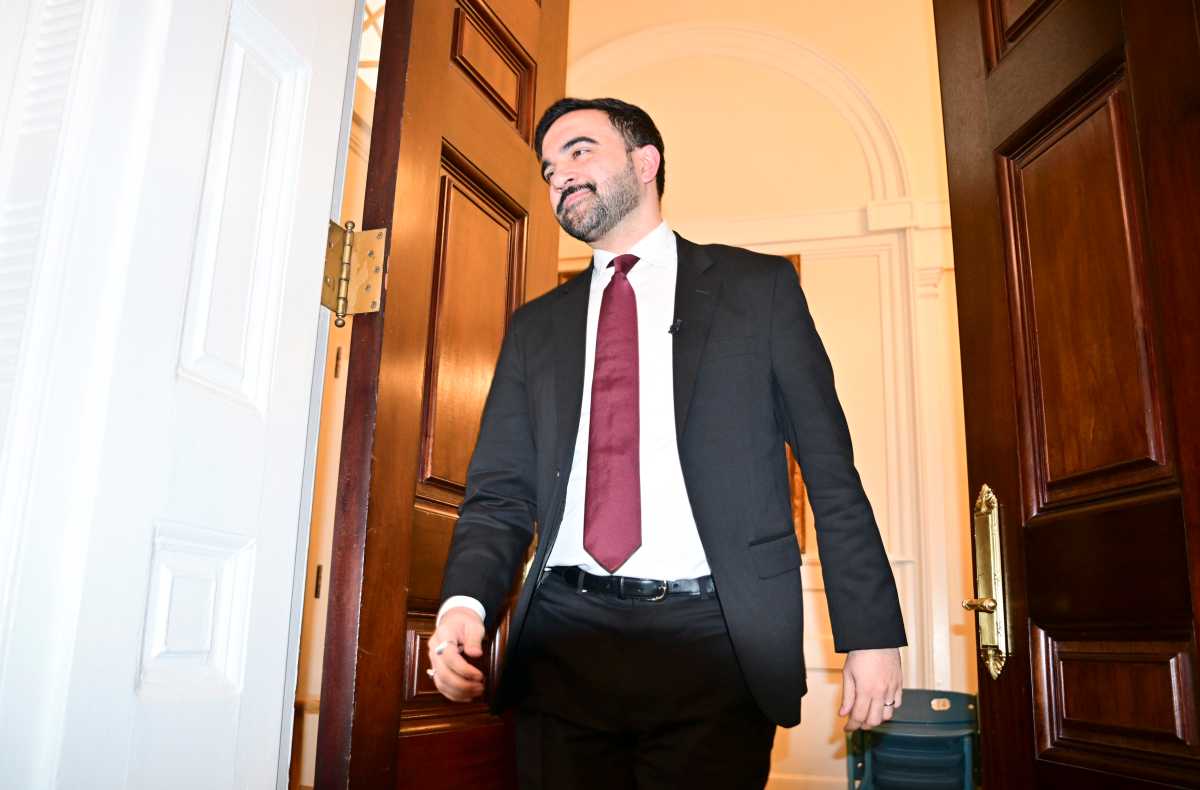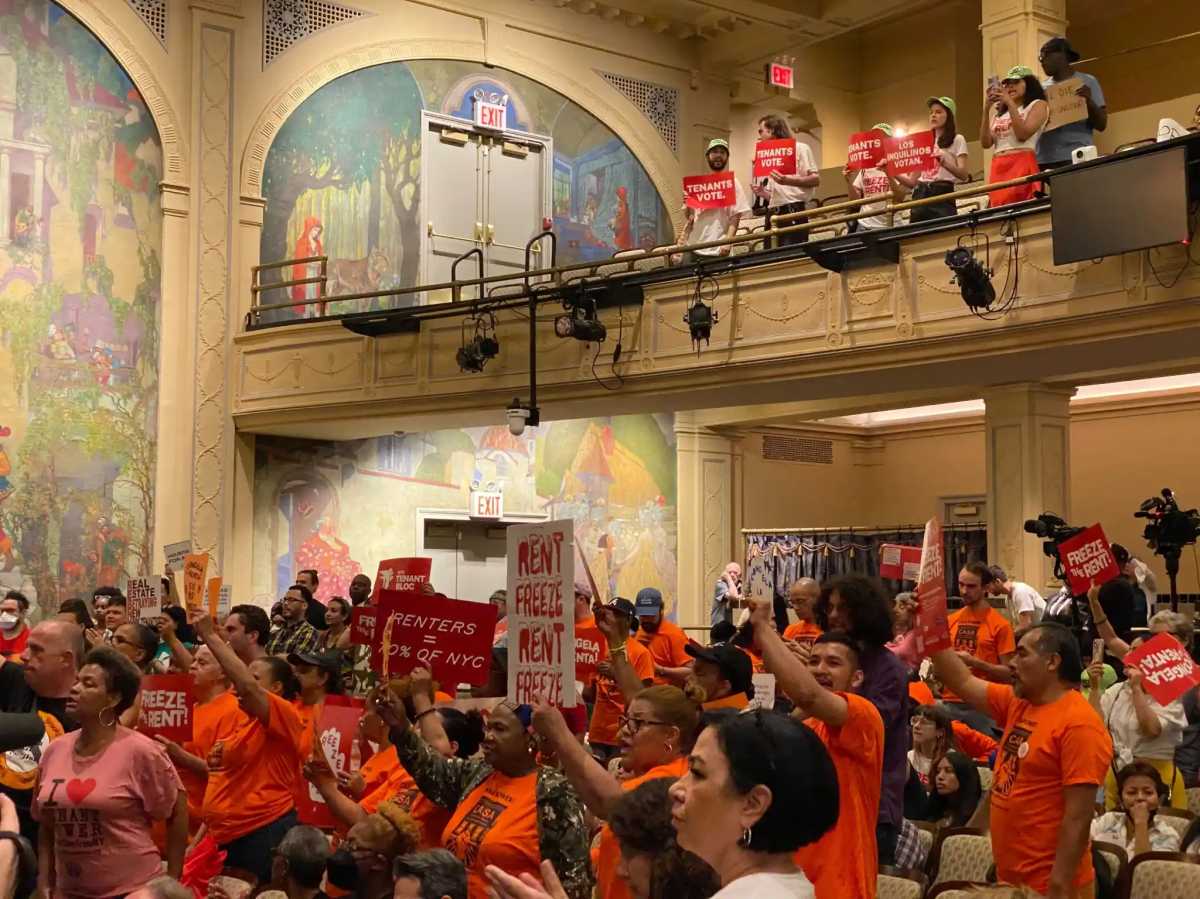Political bigwigs are celebrating a landmark agreement to strengthen the state’s rent laws, which will affect more than 2.5 million city dwellers.
The agreement — which would limit the ability of landlords to jack up rent, eliminate the deregulation of many apartments, and make the new rent laws permanent — is a historic victory for tenants in New York, according to the leaders of both state legislative chambers.
“These reforms give New Yorkers the strongest tenant protections in history. For too long, power has been tilted in favor of landlords and these measures finally restore equity and extend protections to tenants across the state,” Senate Majority Leader Andrea Stewart-Cousins and Assembly Speaker Carl Heastie said in a joint statement on June 11.
The agreement — officially called the Housing Stability and Tenant Protection Act — is expected to pass both chambers and be signed by the governor before June 15, when the current iteration of the rent laws are set to expire.
The ambitious push came on the heels of last November’s election, which saw the Democratic Party take control of the state Senate — a development that the legislative leaders credit with their ability to pass the new agreement.
“None of these historic new tenant protections would be possible without the fact that New York finally has a united Democratic legislature,” said Stewart-Cousins and Heastie.
Following the election, housing advocates began pushing lawmakers to enact nine pieces of legislation, collectively known as “universal rent control,” spearheaded by Sen. Julia Salazar (D–Bushwick) — who first won her seat in November.
The agreement reached this week contains many of those proposals, including the abolishment of provisions that allowed landlords to increase rent of rent-stabilized apartments by up to 20 percent each time they were vacated or renovated.
The deal also repealed legal provisions that allowed building owners to remove rental units from rent-stabilization altogether if the monthly rent increased above a certain threshold, or if the tenant earned an annual income above $200,000. Since they were first passed in 1994, those provisions led to the deregulation of more than 300,000 units, according to the legislature fact sheet on the agreement.
Throughout the legislative session — which began in January — lawmakers had been scrambling to reach a new agreement before the expiration of the current rent laws. Frustrated with the temporary nature of rent law agreements, which expire every four years, legislators eliminated the sunset provision all together in this agreement — ensuring that these laws will remain in effect until the legislature takes purposeful action to repeal or terminate them.
One noteworthy aspect of the housing advocates’ demands that was missing from finalized agreement was the far-reaching “good clause” provision, which would have made it substantially more difficult for landlords to evict tenants.
The provision — which had been controversial since it was first introduced by Salazar in January — would have prevented building owners from excessively increasing the price of rent during or between lease terms for the vast majority of rental units in the state.
Building owners would only be allowed to evict tenants, or deny them renewal of their lease, for “good cause,” which includes failure to pay rent, using the premises for illegal purposes, or if the building owner themselves wanted to occupy the space.
Even with the absence of the important provision, local political leaders celebrated the agreement as a major victory for renters.
State Sen. Zellnor Myrie (D-Crown Heights) — who successfully mounted a progressive primary challenge against an entrenched incumbent in last year’s election, in part by campaigning heavily on housing rights — put the agreement in historical terms.
“This bill is the strongest package of tenant protections New York has seen since World War II,” he said. “For decades, our communities have lost hundreds of thousands of rent regulated units, but with this legislation, we are putting power back in the hands of tenants. We are taking a historic step forward in the fight for housing as a human right.”
Another Brooklyn legislator, Assemblyman Steven Cymbrowitz (D-Brighton Beach), who chairs the Housing Committee, said the agreement would allow lower-income people to remain in the city.
“It reaffirms our commitment to ensuring that New York state remains a welcoming place for everyone who wants to live here, not just the wealthy,” he said.
Mayor Bill de Blasio took a break from his presidential campaign to celebrate the proposal as a development that will help alleviate strain of lacking affordable housing units in the city.
“This is a remarkable achievement that will halt displacement, harassment and unjust evictions, and keep working families in the homes they love,” said de Blasio. “Combined with the city’s rapid pace of building and protecting affordable homes, these reforms mean we can go from just holding the line to actually growing the number of apartments New Yorkers can afford.”
While elected leaders and housing activists celebrated, real estate bigwigs blasted the proposal as detrimental to the housing industry.
One real estate organization, Taxpayers for an Affordable New York, argued that building owners would be unable to keep up with growing costs if they were denied the ability to increase rent.
“This legislation fails to address the city’s affordable housing crisis and will lead to disinvestment in the city’s private sector rental stock consigning hundreds of thousands of rent-regulated tenants to living in buildings that are likely to fall into disrepair,” the organization said in a statement.
The President of the Real Estate Board of New York — an advocacy group of real estate developers — said the increase in government control over rent laws would further entrench the housing problems in New York City.
“The legislation put forward last night would be a disaster for the city’s future,” said John Banks. “The end result will be that the city’s housing crisis will get worse, with less affordable housing and little relief for those New Yorkers who need the most help paying rent.”
Nevertheless, the proposed legislation is expected to sail through the legislature and land on the desk of Gov. Andrew Cuomo, who indicated on June 12 that he will sign the law.
“I believe this is the best tenant protections they will pass, and I will sign it,” he said.

























